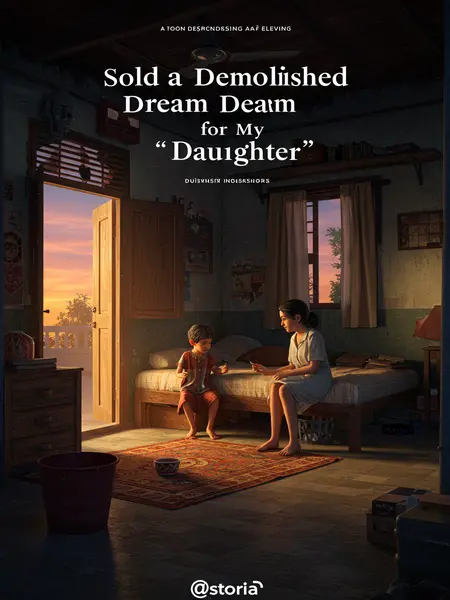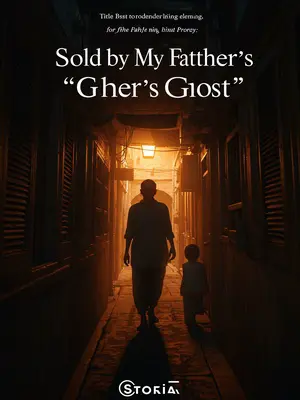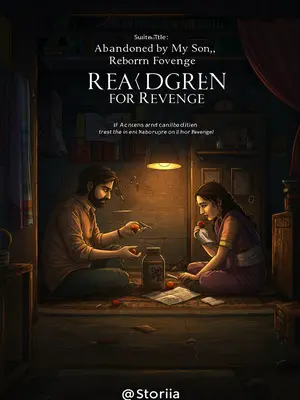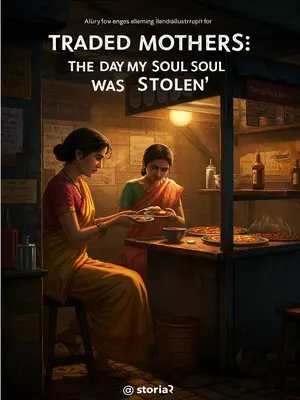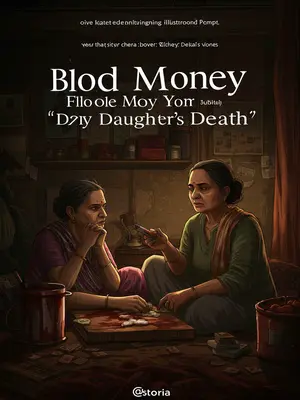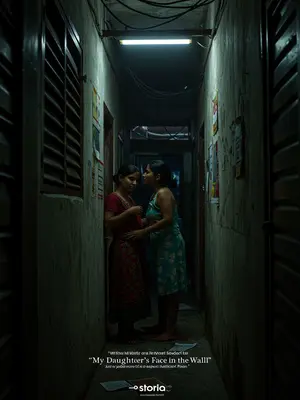Chapter 4: Gossip, Grit, and a Shocking Twist
Cleaning the house was a mammoth task, so we packed up our things in the village, moving bit by bit. Mum made endless lists, Dadi bossed around the movers, and every night we swept dust from corners, laughter echoing in the empty rooms.
When we got home, the neighbours gathered to gossip—peanut shells crunching underfoot, the tang of raw onion from someone’s kachori drifting through the window as the aunties snacked and whispered. “Did you hear? The Sharmas bought that haunted bungalow in Civil Lines!” “Haunted, I’m telling you. Pass the peanuts.” Their voices mingled with the clatter of tea cups and the shouts of kids playing outside. Mum hummed a film song, pretending not to hear.
Aunty Geeta piped up, “All that money, wasted on a broken-down house. For what—a girl’s stubbornness?” Uncle Rajesh snorted, “In our time, people built their own. This generation, no patience.” The others nodded, remembering old sacrifices. Aunty Rekha tossed peanut shells and said, “Last time I told Sia’s mum to have another son, she didn’t even answer. So much attitude! As if daughters can carry a family name. Just wait and see.”
Dadi, overhearing, banged a pot and marched out. “Beta, don’t listen to these old hags. Sia will show them what daughters can do.” She called Mum into the kitchen, speaking softly: “If Sia’s heart is happy, so am I. Let the neighbours talk. When luck is with you, no one can stop you.” She slipped a few extra notes into Mum’s purse, “just in case.”
She told everyone, “If Sia likes it, then buy it. Don’t listen to their nonsense. At least now we have a house in the city.” Her pride was fierce, and I felt a swell of courage just knowing she was on my side. I peeked through the window and stuck my tongue out at the gossiping aunties, making my cousin giggle till she nearly choked on her kachori.
My parents agreed and started packing up our things. Mum sorted old clothes, Dad wrapped up Dadi’s wedding photo, each item a memory tucked away for our new life. The house buzzed with the chaos of change—boxes, half-eaten meals, Dad’s phone ringing off the hook.
The next day, Dad came home looking dazed, his face pale. Mum set down her rolling pin, flour dusting her hands, and Dadi looked up from her knitting. “Arrey, kya hua? Bhoot dekh liya kya?” Mum tried to joke, but worry crept into her voice. The silence stretched thick.
After a long pause, Dad said, “Shalini, the house we just bought is going to be demolished.” The words hit like a stone. Dadi gasped, Mum’s hands flew to her mouth, and I stared at Dad, unable to understand. Outside, the village kept moving—chaiwala’s call, children’s laughter—but inside, everything had changed. As my parents stared at each other, the weight of the city pressing in, I wondered if luck would follow us here, or if we’d have to make our own.
